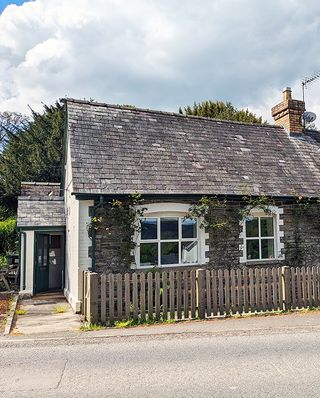
The Bleddfa Centre
A new era ….
In 2023 the Sidney Nolan Trust announced a merger with the Bleddfa Trust, bringing together two well-established arts organisations on the Welsh / English border.
The Bleddfa Centre was founded by James Roose-Evans (1927-2022), a pioneering British theatre director, priest, and writer on experimental theatre, ritual and meditation. In 1959 he founded the Hampstead Theatre Club, London, then in 1974 the Bleddfa Centre for the Creative Spirit, in mid-Wales.
The Trustees of both organisations recognise their shared objectives in the power of the creative arts to enhance and change lives. The Sidney Nolan Trust will take forward the values and spirit of Bleddfa and look forward to an ambitious and vibrant artistic future for the benefit of all.
James Roose-Evans (1927-2022)
James Roose-Evans, best-remembered as a theatre director but also a prolific writer and an Anglican priest, founded the Bleddfa Trust in 1974.
This move was both countercultural and idealistic. Like Arnold Wesker’s Centre 42 – which began in the 1960’s as a touring festival aimed at bringing art and culture to the impoverished provinces – the Trust’s ambition was to enrich life and community in the Welsh Marches. It was called The Bleddfa Centre for Caring and the Arts, then later The Bleddfa Centre for the Creative Spirit, its mission evolving with each new Director.
Not the least achievement was James’s daring and generous rescue of three sets of buildings to serve the community. Bleddfa’s magnificent St Mary Magdalene Church was on a 1973 list for closure. James devised a programme of exhibitions of sacred art, seminars, retreats, concerts and workshops before raising money for the Church’s restoration. He was all his life a gifted fund-raiser and networker of genius: in 1959 he founded and ran the Hampstead Theatre; in 2015 he co-founded Frontier Theatre Productions.
Around 1980 – as the local population dwindled – Bleddfa lost first its post-office, then its school. The village was evidently dying. James raised the money first to save and then adapt the school to create a much-loved gallery. A set of agricultural buildings were repurposed by architect Dennis Vickers and converted into the Hall Barn (named after benefactor Wendy Hall), a wonderful space for exhibitions, story-telling, concerts, films, and artistic performances of all kinds, as well as a home for community events.
Trust activities were multifarious. Neil McGregor, then-Director of the British Museum, who gave the first Bleddfa Annual Lecture (to an audience just shy of 200) commented that ‘The Bleddfa Centre is a place where the big questions of life are asked.’ His successors included Peter Maxwell Davies, Jonathon Porritt, Melvyn Bragg, Libby Purves, Mark Tully, Satish Kumar, Marina Cantacuzino and Marian Partington. Poet Kathleen Raine and artist Thetis Blacker visited. James himself gave a guest lecture on the subject of The Arts and Creativity, and in 2016 launched the last of his 21 books, following a poetry and music recital.
1987 was designated Bleddfa’s Festival of the Tree: some 31 events included workshops, concerts, films, meditation days, and guided walks; new forest trails were created and the oak wood above the village restocked. Other major Festivals followed: the Family, the Garden, the Mother. Meanwhile the Old School Gallery exhibited The Brotherhood of Ruralists and Robin Tanner, attracting wide audiences. Bleddfa also featured poetry days and meditation retreats with international participation, and much, much else.
Perhaps the Trust's activities are best celebrated by the former archbishop of Canterbury Rowan Williams, Bleddfa’s chief patron, who wrote that ‘Bleddfa is a place where people, ideas and imaginings meet at depth, in a way that is very rare. I think it represents all that is most hopeful for our anxious and fragmented culture.’
These are qualities not easily quantified – and hence often in danger of getting lost or forgotten. And yet, in a period of crass materialism when profit seems to matter more than community and well-being, such intangibles have especial value. They may help explain why James’s legacy remains so important to so many, and why he is so sorely missed.
James drew no salary throughout his years as Director. After he retired a merger with the Sidney Nolan Trust in 2023 was seen as the best prospect for safe-guarding his ideals and continuing his artistic and creative legacy.